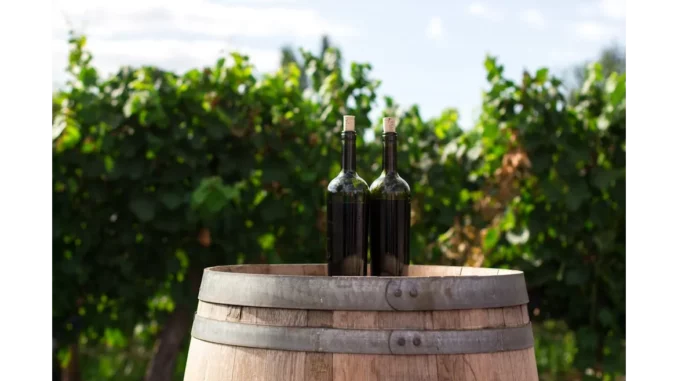
At a recent wine tasting event, I had the opportunity to chat with Olivia Bennett, a seasoned wine enthusiast and sommelier based in London. With an extensive background in wine tasting and a knack for discerning the complex notes in a glass, Olivia shared her insights into what one should do when suspecting a wine is corked during a tasting.
Olivia recounted an experience she had at a prestigious Bordeaux tasting event. “It’s always a thrill to be at these tastings,” she began, her eyes lighting up at the memory. “There’s an air of sophistication and excitement, especially when older vintages are being poured. But with older wines, there’s also the risk of encountering a corked bottle.”
For those unacquainted, a wine is described as ‘corked’ when it has been contaminated with TCA (2,4,6-trichloroanisole), a chemical compound that imparts an unpleasant musty or mouldy aroma to the wine. As Olivia explained, “Corked wine won’t harm you, but it certainly detracts from the enjoyment. The wine might smell like damp cardboard or a musty cellar, and the flavours can be muted or completely off.”
So, what should you do if you suspect a wine is corked? Olivia’s advice was both practical and insightful. “First, I’d give the wineglass another swirl or two,” she advised. “Sometimes, the initial unpleasant aromas can dissipate with a bit of air. It’s always worth giving the wine a chance to evolve in the glass.”
However, if the musty smell persists, Olivia suggested a discreet approach initially. “I’d usually lean over to someone nearby and quietly ask if they’re picking up the same off notes. It helps to have another opinion, and if they agree, it’s reassuring that you’re not alone in your assessment.”
If the consensus is that the wine is indeed off, Olivia recommended addressing the issue thoughtfully. “Depending on the setting, you might choose to approach the host or producer privately. It’s less confrontational and more respectful. I’d say something like, ‘I’m curious if this wine is tasting as you’d expect, because I’m noticing some unusual aromas.’”
Her approach is rooted in respect for the winemaker and the event. “After all,” Olivia continued, “producers want their wines to be shown in the best light. They usually appreciate it when a flawed bottle is pointed out, as it gives them the chance to rectify the situation, often by opening another bottle.”
Olivia also highlighted the importance of being prepared for different reactions. “There’s always a possibility that others, including the winemaker, might not agree with your assessment. Wine tasting is subjective, and everyone’s palate is different. If that’s the case, it’s best to graciously accept their perspective and move on.”
Her experience has shown her that, in most cases, organisers bring extra bottles to account for such situations. “It’s not uncommon for winemakers to have backup bottles, precisely because they want to ensure everyone has a good experience.”
Reflecting on her own experiences, Olivia admitted, “There have been times when I suspected a wine was corked, but no one else seemed to notice or agree. It’s not ideal, but sometimes you just have to smile and let it go. It’s part of the learning curve in the world of wine.”
As our conversation wound down, Olivia left me with a final thought: “Wine tasting is as much about the journey as it is about the wine itself. Each experience, whether perfect or flawed, adds to your understanding and appreciation. So, don’t be afraid to trust your senses and speak up if something seems off. It’s all part of becoming a more informed taster.”
In sharing her insights, Olivia Bennett not only illuminated the intricacies of dealing with corked wine but also underscored the importance of confidence and courtesy in the world of wine tasting. Her approach, marked by a blend of discernment and diplomacy, offers a valuable guide for both novice and seasoned wine enthusiasts alike.
By Diana Tahjmir


Be the first to comment